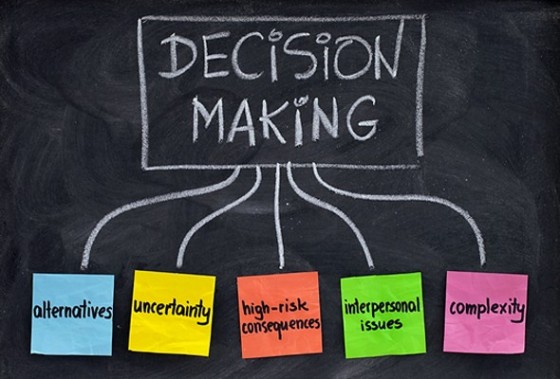Importance Of Decision Making:
Jump To:
Is decision-making a tough task in your day-to-day life?
I said day to day because, decision making, does not just matter for great things in our life. It starts with a simple thing like what food to take this morning. Here comes the importance of decision-making.
For example, foodies on diet (for whatever health issues like cholesterol or improper digestion, they’re on diet), can’t decide on the only item to eat in the morning, looking at so many delicious options. They usually end up eating everything and can’t improve their health.
Sometimes, a more active lifestyle seems to be the best way to help us improve our decision-making based on what we hear.
Even moderate cardiovascular exercise in your late 80s or early 90s can improve the ability to process what you hear and help speed up the decision-making process. Somehow, activities appear to turn back our biological clock and help us process information better.
Decision-Making Process Example:
A decision-making process example in the above case would be to find a balance between the facts you are aware of about the present diet you follow and how far you can get succeeded with the new diet plan you had.
- Then make changes to your diet plan that are adaptable for you.
- Find any alternative food that matches your diet chart, for a change.
Then decide on the new diet plan and stick to it.
Decision Making Is A Process:
Let’s make it simple here.
Decision making should balance awareness and intuition.
Basically, decision-making gets tough when people:
- Don’t know what exactly they want.
- Confused with choices, preferences, options, etc.
And they’re either not satisfied with a single option.

How To Make Decisions Quickly:
Here’s how to make decisions quickly, the simple way to tackle with this is to balance your thoughts between awareness and intuition.
- Awareness is from the reality, which we’re supposed to know, the real-time situations around, to make the work practically possible.
- Intuition comes from a certain kind of knowing from our perspective but not completely known.
The first step is to gather the information, research the issue, and know the reality. Then you’ll have a certain level of estimation that can be done and what can happen. This can be done by giving and getting feedback more often.
It is not that, only happening things around the world are to be trusted. We have our own capabilities for doing it better. This is where intuition comes into the picture. Our intuition comes out of our instinct without any conscious effort.
The second step is to compare reality with intuition, and to what extent they get balanced. Then make the necessary changes to the plan, to make things work for you.
Also, A promise to deliver can create guilt; it creates some sense of tension or anxiety because of a standard of expectation set before we actually know the depth of the task.
It is said that human brains work better in peace. You can control the state of your mind with pranayama techniques such as kapalbhati pranayama, yoga for stress relief, etc.
So, first work upon yourself such as the skill set, and equipment required plan, and work to the best possible by you. The results are going to be great.
Take Away:
Remember! Don’t think of a decision as good or bad on the first go. It is a decision first and the way you perform your actions makes it good or bad.
Finally, take your decision without confusion. It’s simple. Of course, we can’t manage to think right away like this, but keep trying. Make your brain learn good things, it can learn BTW.

